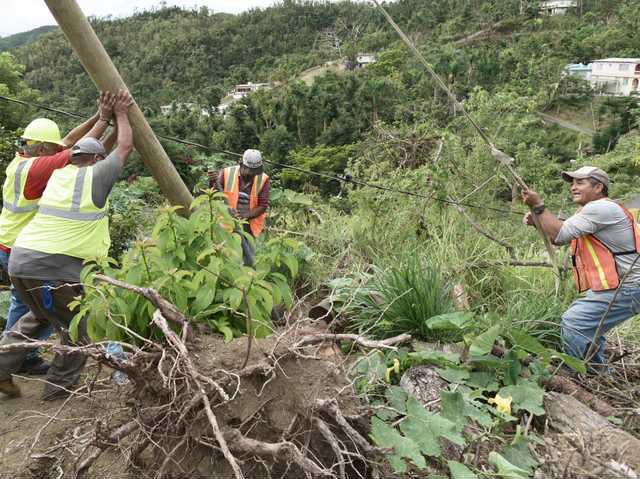SAN JUAN, Puerto Rico — The administrator of the U.S. Federal Emergency Management Agency said Friday it will take up to an estimated $50 billion to help rebuild Puerto Rico from Hurricane Maria and warned that the U.S. territory is not ready for another disaster.Brock Long said his agency aims to make the island's roads, homes, bridges and electrical grid as strong as possible but noted that the next hurricane season starts June 1."We're running out of time," he said during a visit to Puerto Rico, adding that much of the island's infrastructure collapsed. "We have a long way to go."Long said his agency also is coordinating a June 14 planning and training exercise with Puerto Rico's government in which life-saving supplies will be delivered to the island's 78 municipalities to ensure better response times for any upcoming storms. Cities and towns will be allowed to store those supplies for future disasters.FEMA and local government officials already have stockpiled more than 15.6 million liters of water and more than 2.8 million meals in five warehouses across the island in the event of another disaster.Long stressed that Puerto Rico's public and private sectors have to build a strong emergency response network and establish unified plans."FEMA cannot be directly responsible for all of the response and recovery," he said.He also said the private sector should ensure that communication systems become more resistant.
FEMA: Puerto Rico running out of time
Much work left as storm season approaches


Sign up for the Herald's free e-newsletter